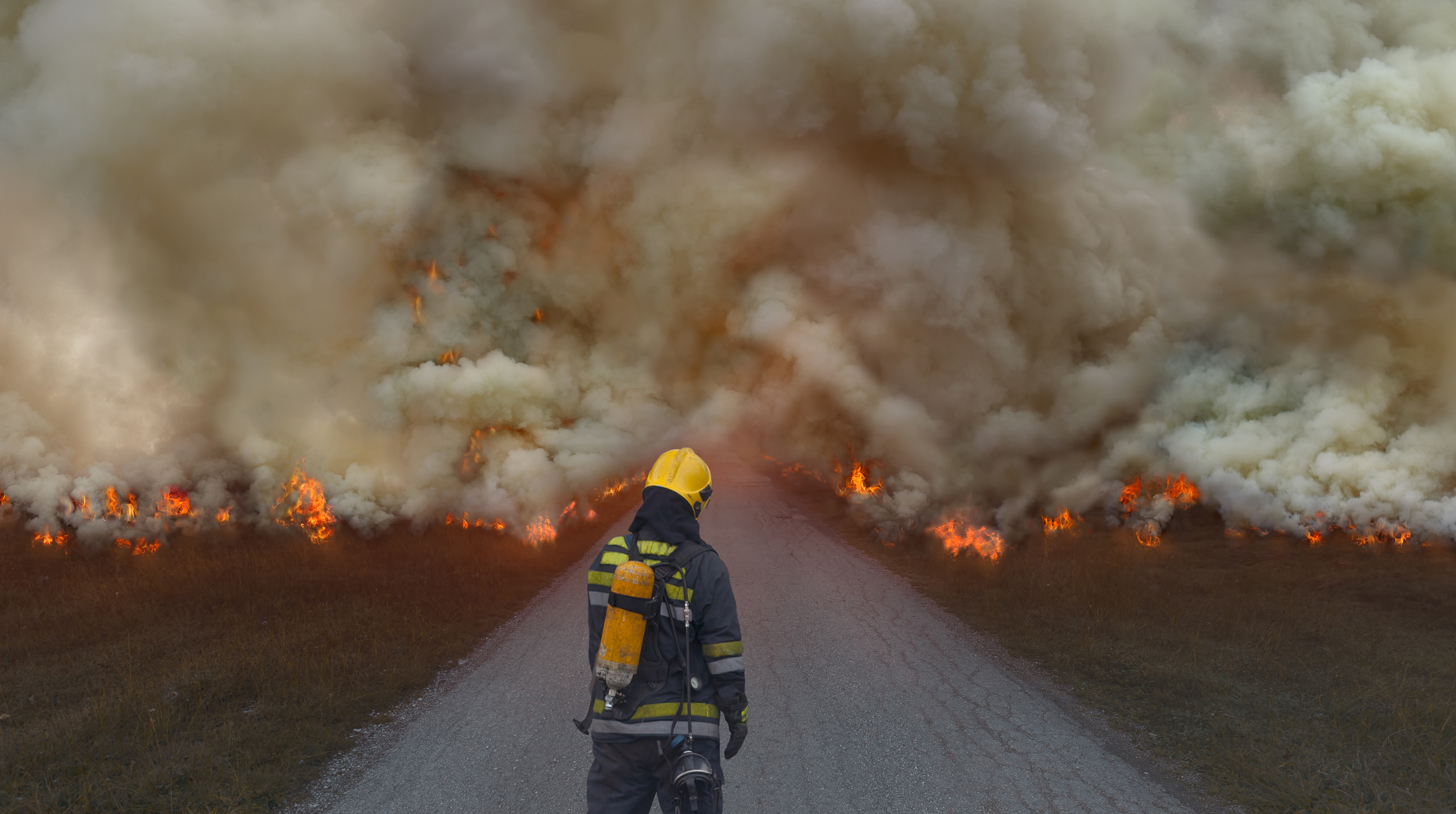
Most people are unprepared when a true catastrophe strikes. Whether Mother Nature or humankind is to blame, people often have to try to pick up the pieces and forge ahead. Leaders should step into the limelight during these situations and assist others in any way possible.
Catastrophe can strike on a large or small scale - it can affect millions or maybe only a few people. Massive storms, earthquakes, bombs and other weapons, sickness and disease. The list goes on and on, and humans must bind together and be innovative to face these problems. Leaders have a unique perspective to offer in times of calamity if they only have the drive and courage to step forth.
For many, some events can be triggering. Survivors may experience a fear response when something similar happens again. War, floods, fires, storms, crashes, and a hundred other catastrophic situations may trigger PTSD or post-traumatic
stress disorder.
When military conflicts affect civilian populations, psychological complaints such as depression, anxiety, and PTSD are often seen. A recent study discussed how PTSD was positively correlated with physical symptoms. Neuroscience calls these somatization symptoms, or when a person is very anxious about physical symptoms they may have (like fatigue and pain.) Trauma exposure in war situation such as Kosovo and the Balkans contributed to high rates of PTSD and somatization symptoms (Morina, 2018).
When something terrible happens hundreds or even thousands of miles away, it’s easy to read about it and shake your head in disbelief. How often do you actually take action? As a leader, you can positively influence your peers, your employees, your clients, and even your family members to help others in need.
No one is useless in this world who lightens the burdens of another.
Charles Dickens
You may protest and say you don’t have the time. You don’t have a spare second to worry about someone else with the big deadline coming up. When you feel like that, take a step back and reassess your priorities. Is the deadline important? Of course, but is it more important than taking ten minutes or even a few hours to impact someone in need positively?
Do you have the drive to adjust your life in a minor way to profoundly impact someone else’s? Using this drive to push innovation will improve how you lead, and how you interact with others. While no one expects you as a leader to ALWAYS put others first, imagine what kind of world we would live in if we at least consider others and help when something horrible occurs.
Leaders have a valuable skill set when disaster strikes. They often have a system of command already in place, and even though these chains of command are typically based in the business world, with a little innovation they can be adapted to counter catastrophic situations.
There are many leadership models available on the market. New ideas and innovations are constantly needed to keep up with climate change, technology, and rapid globalisation. Drive gives you the fuel to face doubt, fear, and failure.
The  can help you cultivate drive by teaching leaders how to develop resilience, determination, and optimism. The i4 Neuroleader can offer you insights on the impact of gut health on your brain, and how deficiencies can affect how you think and react to situations.
can help you cultivate drive by teaching leaders how to develop resilience, determination, and optimism. The i4 Neuroleader can offer you insights on the impact of gut health on your brain, and how deficiencies can affect how you think and react to situations.
Catastrophes can happen to any of us, in the blink of an eye. Your entire world can change, forcing you to accept the unknown. However, with drive and innovation, you can lessen the load for others because someday it might be you who needs
a hand up.
Citation:
Morina, N., Schnyder, U., Klaghofer, R., Müller, J., Martin-Soelch, C. (2018). Trauma exposure and the mediating role of posttraumatic stress on somatic symptoms in civilian war victims. BMC Psychiatry, 18, 92. http://doi.org/10.1186/s12888-018-1680-4
These Stories on Innovation

Founder & CEO
About my Brain Institute
Scientist, educator, author, speaker, coach, award-winning leadership specialist, filmmaker and creator of the i4 Neuroleader Model & Methodology.
Silvia's scientific background and curiosity about the human brain led her to a decade long journey of research into optimal brain functioning and the application of neuroscience in leadership and daily life. Her past and current roles have uniquely prepared her for the current undertaking, that of leadership activist & change agent.
Silvia Damiano founded The About my Brain Institute in 2009, with the purpose of democratising leadership & neuroscience. She has a passionately held belief, that leaders in our 21st century global economy and their organisations must radically change long-held ideas of what constitutes effective leadership
In her ground-breaking books ‘Leadership is Upside Down’, ‘Brain-Friendly Leadership’ and the 2018 documentary ‘Make Me A Leader’, Silvia provides both compelling evidence and explores the importance of leadership in our personal and professional lives and what it takes to develop the human behind the leader.
Silvia has worked in different countries, across many industries, helping teams and organisations improve business performance. Silvia’s clients have described her as a passionate, dynamic, a highly experienced speaker and master facilitator on the topics of Emotional Intelligence, Cultural Change, Neuroleadership & Engagement.
Silvia is passionate about leaving a legacy of well-rounded leaders who can act and decide in a way that better serves humanity. Her clients include Microsoft, Australian Stock Exchange, NSW Government, VISA, Fuji Xerox and Manpower amongst many other global companies.
Monday to Friday
9:00am - 5:00pm (AEST)
Sydney, Australia
We reply within 48 hours!
General Business Enquiries:
hello@aboutmybrain.com
Technical Support:
support@aboutmybrain.com
No Comments Yet
Let us know what you think